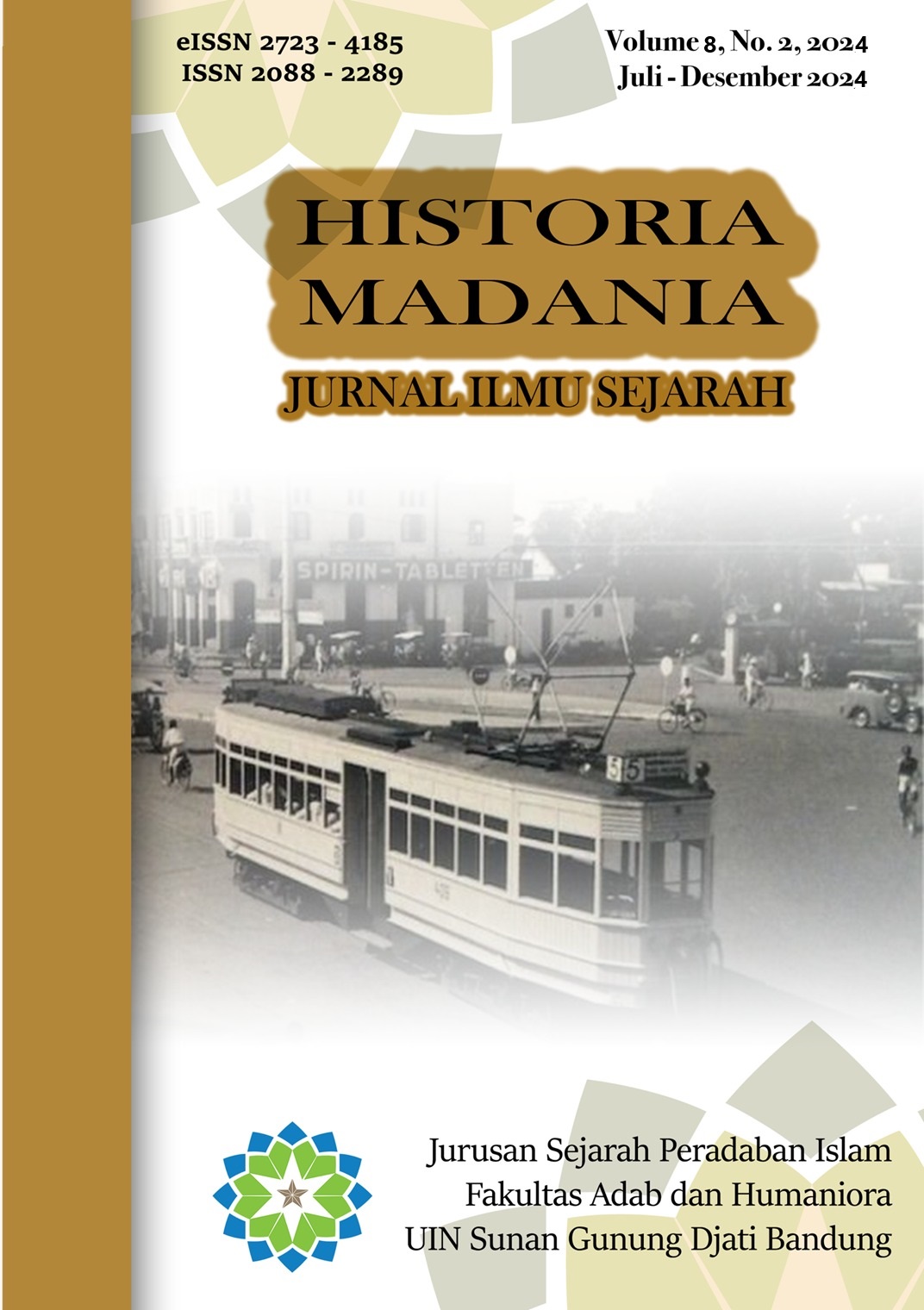Kasus Penistaan Agama dalam Tabloid Monitor Tahun 1990 - 1991
DOI:
https://doi.org/10.15575/hm.v8i2.39742Abstract
This study aims to find out and understand the history of blasphemy in the mass media in Indonesia, especially regarding the case of blasphemy in the Monitor Tabloid starting from its background, public response to the case, to its resolution. The research method used is the historical research method. The historical research method is a research method consisting of four stages: heuristics, verification, interpretation, and historiography. Based on the results of the research conducted, it can be known and understood that: the publication of the article "Ini Dia: 50 Tokoh yang Dikagumi Pembaca Kita" was not based on any intention except as entertainment. The intolerance and insensitivity of Arswendo Atmowiloto as the editor-in-chief of Monitor towards religion was caused by the lack of education about the sacred basic values of other religions (re: Islam). The public response in the form of anger and mass riots in responding to the case was inseparable from the influence of the New Order government's repression against religious people and the rampant issue of Christianization among the community at that time. As a result of his negligence, Monitor Tabloid's license was revoked, Arswendo was removed from all positions he held, and was brought to court on the basis of Article 156 A of the Criminal Code concerning Blasphemy and Its Elements with a sentence of 5 years in prison.
Downloads
Published
2024-12-30
How to Cite
Zharfan, F. A. (2024). Kasus Penistaan Agama dalam Tabloid Monitor Tahun 1990 - 1991. Historia Madania: Jurnal Ilmu Sejarah, 8(2), 261–275. https://doi.org/10.15575/hm.v8i2.39742
Issue
Section
Articles
Citation Check
License
Authors who publish with this journal agree to the following terms:
- Authors retain copyright and grant the journal right of first publication with the work simultaneously licensed under a Creative Commons Attribution License that allows others to share the work with an acknowledgment of the work's authorship and initial publication in this journal.
- Authors are able to enter into separate, additional contractual arrangements for the non-exclusive distribution of the journal's published version of the work (e.g., post it to an institutional repository or publish it in a book), with an acknowledgment of its initial publication in this journal.
- Authors are permitted and encouraged to post their work online (e.g., in institutional repositories or on their website) prior to and during the submission process, as it can lead to productive exchanges, as well as earlier and greater citation of published work (See The Effect of Open Access).


